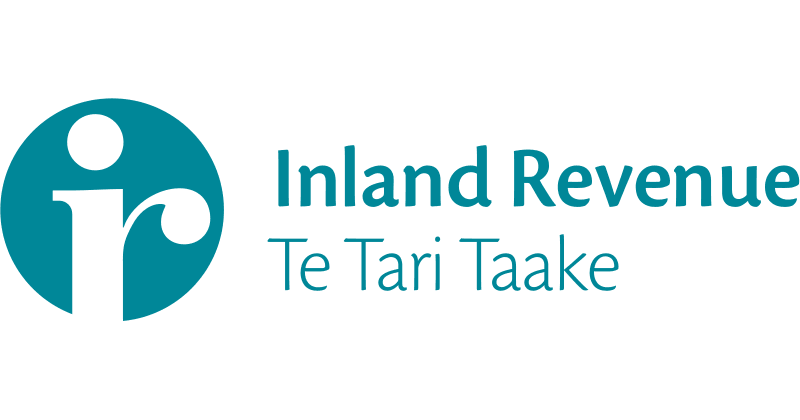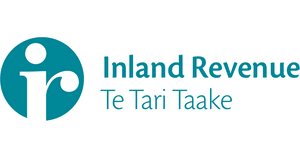Today we launch Tax Heroes, a project created in partnership with the IRD which aims to ‘invert the rich list’, and instead focus on the entities that contribute the most to New Zealand. Duncan Greive explains what it’s all about.
Every July for 32 years the National Business Review has published its ‘Rich List’, a survey of individuals and families with a net worth of over $50m. It’s an evolving map of where wealth has moved during our recent history. Its membership has been decimated by crashes and swollen by booms, celebrated in some quarters and derided in others.
It contains numerous stories that impact on certain groups of New Zealanders. Its members might employ some of us, directly or indirectly. This is, hopefully, a good thing for them. Others might have a less positive experience: we might be displaced by their property developments or rendered jobless by a restructure.
Surprisingly often, though, their impact on New Zealand is relatively muted. As Liam Dann noted last year, New Zealand’s richest man, Graeme Hart, has much of his $13.6bn fortune tied to his multinational packaging group. Its outlook and operations are global. The same goes for a number of our wealthiest, from the secretive emerging markets investor Richard Chandler, to African property developer Stephen Jennings, to the extreme example of tech entrepreneur Peter Thiel, who appears to have largely been a wealth drain through his sharp exploitation of our government venture funds.
The point is that while the individual stories of this wealth are often fascinating, and the data useful, the impact of the Rich List on the rest of us is much less clear. After all, what use is all that wealth to ordinary New Zealanders? Its most tangible benefit is where a portion of it is redistributed through the tax system. And yet for a variety of reasons the link between wealth and tax is not always a strong one.
Which brings us to Tax Heroes. It’s a project which attempts to invert the Rich List, in many ways. To ask not what this country has done for them, but what they have done for this country. I wanted to know who, in any given year, paid the most tax.
Unfortunately this task is not easy, for reasons relating to both privacy and philosophy. I remember being taken by a phrase used by Shamubeel Eaqub when I interviewed him in 2016. “Tax is love,” he told me, a message he returned to in a column for Stuff the following year. I was struck by its power.
The typical way of framing tax, regardless of who pays it, is of a payment grudgingly given, an unfortunate inevitability of modern life. This sentiment is particularly strong for a generation of mostly (but far from exclusively) right-leaning politicians and their followers, who lived through an era of major expansion in the scale and scope of the state and found the prospect terrifying.
The most avid of them read the novels of Ayn Rand, followed Milton Friedman’s Chicago school of economic thought and watched in awe as Reagan, Thatcher, Lange and co rolled out the swift and shocking reforms of the ’80s. An activist named Grover Norquist has become a kind of cult figure to this movement in America, with his famous dictum that he wanted the government small enough to “drown in a bathtub” as he and his organisation Americans for Tax Reform signed up reams of politicians to his ‘pledge’.
This pledge was, as the Washington Post characterised it in 2015, a “blood oath in which Republican politicians promise to never, ever, ever raise taxes for any reason”. The movement had begun with a laudable goal – preventing the kind of bloat and fiddling over-regulation which rendered Muldoon’s New Zealand economy so stagnant and distorted. Yet, as with many revolutionary movements, it ended up in wild-eyed fundamentalism: viewing all regulation and taxation as inherently evil and dreaming of seasteading.
To many of what we don’t (but definitely could) call the Leighton Smith Generation, this remains the locked in reality: government does things ponderously and inefficiently, therefore taxes should be restrained so as to starve it into leanness. Yet for those born in and after the ‘70s those demons don’t hold anything like the same power. In fact, they’ve grown up with a very different reality: living under the kind of fiscal constraint that made us view third world illnesses, chronic overcrowding and families living in cars as just part of the cost of a civilised society.
And as they have come to positions of agency and power, their mindset is very different to that of those who preceded them. They often want to fix the wounds created by starving the state. They understand that tax is not solely understandable as a necessary evil, but can also be understood as the price we pay for living in a civilised society.
And that it’s a bargain.
Which brings us to Tax Heroes, again. The original conceit was to publish a list of the biggest taxpayers in the country. In Sweden, Finland and Norway this would be an incredibly simple exercise: all tax records are published and accessible to all. The notion of privacy is important – just not when it comes to money.
Nearly everywhere else, New Zealand included, your income and taxes are between you and the tax department. Given that, I instead decided to focus on our corporate community – specifically those who, due to their membership of our stock exchange, are obliged to publish their accounts each year.
Again, this presented its challenges, which we’ll explore in subsequent pieces in this series, but briefly have to do with this information not being centralised and cross-comparable. To help us navigate this web, journalist Maria Slade and I – who collaborated on this project – met with Jilnaught Wong and Norman Wong at the University of Auckland. They were intrigued enough by the idea to take it on as a research project, and from those conversations came a paper called ‘Corporate tax avoidance or corporate responsibility? An examination of the NZX 50 companies’ which was presented at Monash University’s Australian Tax Teachers’ conference in January and is under pre-publication review at an academic journal.
Even once we established a methodology for gathering the information, there were a number of stumbling blocks which have become caveats describing the limits of this information’s usefulness. It concerns only publicly listed companies, along with a few large entities who accepted our invitation to participate: some of the big Australian-owned banks, for example, and the Super Fund. Big privately held businesses, like the Todd Corporation, do not have to publish their accounts. And because we used the NZX50 as the basis for the ranking, some companies who pay a lot of tax but are languishing in value terms will inevitably have been missed.
See how much tax our top 50 companies pay here
So Tax Heroes is necessarily imperfect. Yet perfection is not the aim – instead it is to look at a reliable set of very large numbers, and think about what they mean.
Big business, as a community, doesn’t have the greatest reputation in New Zealand at present. And while it ebbs and flows in different countries, that’s largely the case the world over. From protests over globalisation, to Trump and Brexit, to their role in climate change, to rampant CEO wage growth, to the GFC, to the opaque financial affairs of multinationals – there have been any number of good reasons to be mad at big business over the past couple of decades.
Most of that list above is still firmly at the to-do stage, and a number are actively worsening still.
And yet it’s far from the whole story. The actions of Exxon-Mobil, Facebook, Volkswagen or Enron might leave us gasping in horror at times. Yet big business is also a huge employer, and can have an outsize influence on issues well beyond business. In New Zealand banks have become champions of diversity, telcos of tax reform, retailers of supply chain transparency. Some will look at those facts and see branding and self-interest. Others just concentrate on the upside.
Regardless of whether a firm is pushing society forward or dragging it back, though, it tends to pay a huge amount in tax. That has not always been the case – our history is littered with perverse incentives and exemptions, like the ability to claim 150% of the cost of international travel in the ‘80s – but waves of tax reform from the ’80s through ’90s have broadly seen businesses pay a much larger share. The percentage of government tax revenues gathered through corporate tax rose from 5% in 1984 to 17% today – even as the rate has lowered from 48% to 28%.
When I interviewed a number of tax specialists and lawyers for a 2013 feature on tax for North & South, there was a high degree of unanimity on one subject in particular: corporate compliance. A combination of cultural change, legal and regulatory simplification and IRD persistence has seen major New Zealand corporations fall into line with a system mostly seen as fair and transparent. (Bear in mind that this series is funded by the IRD; but good luck finding a tax lawyer to disagree with the assertion.)
This is backed up by the results of the University of Auckland tax professors’ paper. They wrote: “our study shows that the sample of NZX 50 companies are responsible corporate tax payers, there is no evidence that they are engaged in tax avoidance”. A quick note: tax avoidance is the legal but frowned upon structuring of business to avoid tax, as opposed to tax evasion, which is illegally and fraudulently failing to declare income.
The professors did note that, while also not engaged in tax avoidance, “property and retirement/aged care operators paid just 6.4%,” in tax, and raised questions, which the new Tax Working Group chaired by Sir Michael Cullen may well consider, about whether such businesses should remain tax privileged. “If this sector is excluded, the other companies paid an average 27.8%, close to the statutory tax rate of 28%.”
The tax professors weren’t necessarily expecting to find the numbers so close. “That was a nice surprise,” Jilnaught Wong says in an interview coming later this week. “The tax laws have become pretty tight, they’ve closed up a lot of loopholes.”
It is really important to point out here that the vast bulk of these big taxpayers are a particular type of business. Large, inevitably. But often labour-intensive, too – so they also pay workers, who contribute PAYE. They frequently also pay a lot of GST. And they tend to be New Zealand-based and operated. So unlike the Apples and Amazons of this world, who can be perceived as siphoning money out of this country and leaving little behind, these businesses have multi-faceted, deep-rooted and long-running relationships with this country.
And an outsize role in funding its operations. In 2017 the corporate tax take was $12.6bn – over $1.5bn more than Treasury had budgeted to receive for the year, making up nearly a third of the extra government tax revenue which appeared. Of this, a disproportionate share was paid by the very biggest entities in the country. So-called ‘large and significant enterprises’ (companies with turnover of over $80m) paid $5.8b, or 51%, and the largest 60 companies paid $3.8b, or 34.5%.
This is where the gulf between the private wealth of the NBR Rich List and the public good of the tax take comes in. That unaccounted for money was earmarked for tax cuts (bracket-creep adjustments, if you’re being picky) in the hands of National. Labour thought it would be well-spent on an expanded families package and a year’s free tertiary education. New Zealand First wanted to spend it on infrastructure for the regions, while the Greens wanted to plant a billion trees. ACT, of course, didn’t want to spend it at all – though it was never theirs to spend in the first place.
The point being that Shamubeel Eaqab is right. Tax is love. Or the opportunity to express it. To spend it on projects or people you think could really use it. So for the next week, we’re going to examine tax from multiple angles, and look at the businesses which pay it. We’re not saying they’re perfect, or even all that good, in some cases. But we are saying that New Zealand would be in trouble without them, and that their impact on New Zealand is vastly more positive than the weightless digital or IP-based businesses whose income leaves without a trace.
Over the next five days we’ll release the list, and then host a discussion about what it means, where tax is going and what it all means. I hope you enjoy it – and if you’d like to contribute, please get in touch.
This content is brought to you by IRD. Ready for a cash flow game-changer? Only pay provisional tax when you’re making a profit. AIM, a new option with MYOB, Xero and APS.




